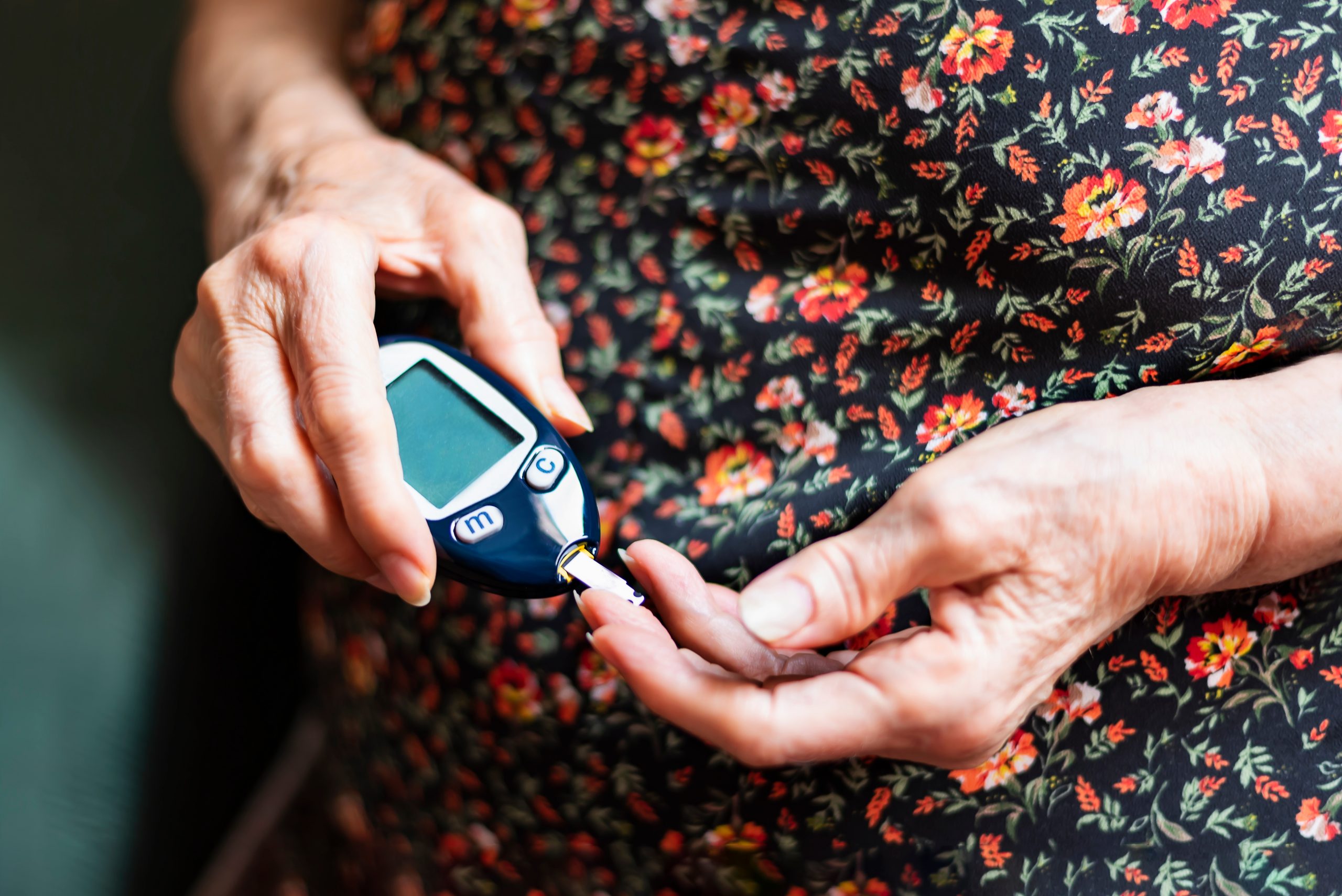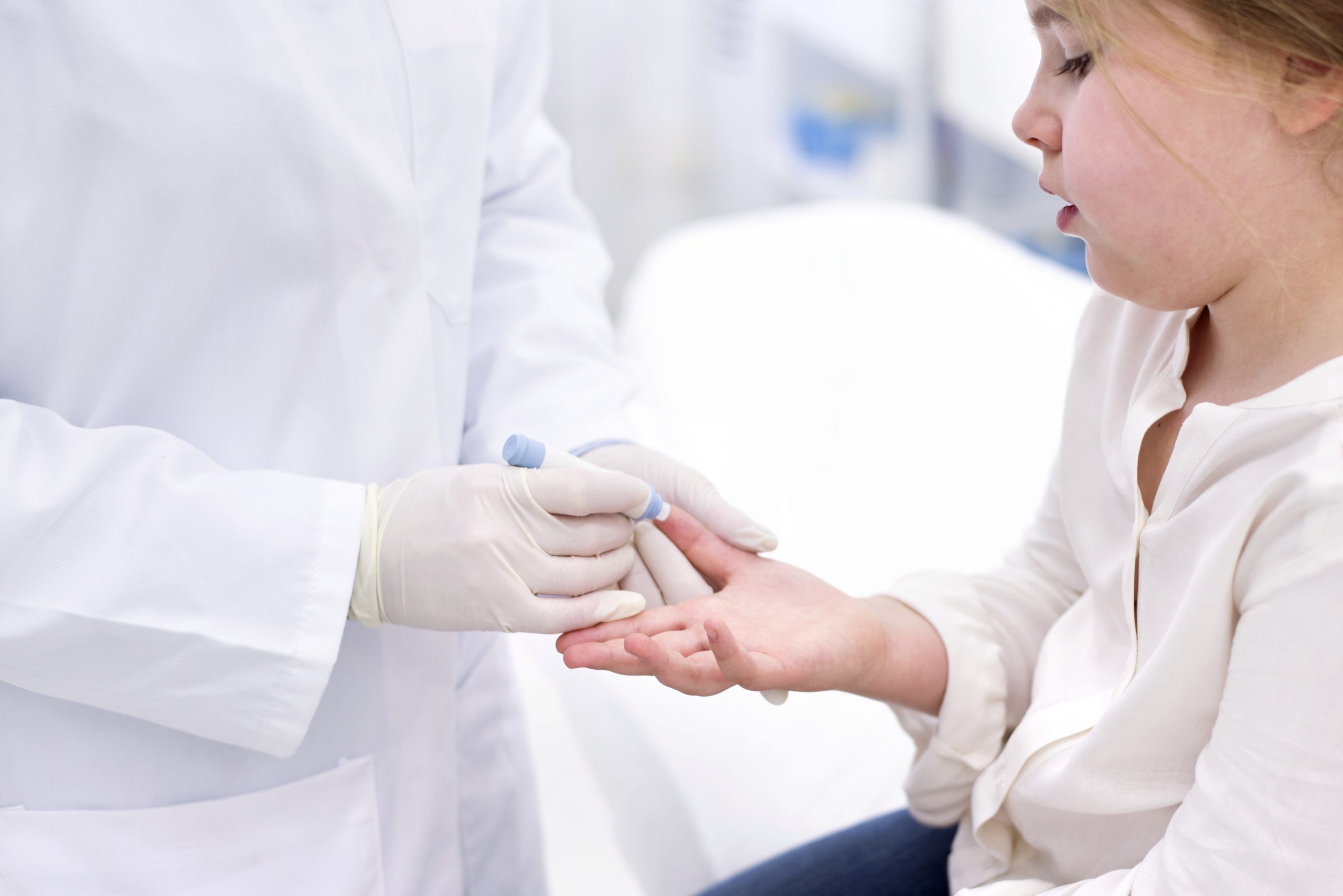Diabetes: Signs, symptoms and potential treatments for both Type 1 and Type 2
Worried about diabetes? Here's everything you should know...


It is estimated that more than one in 16 people in the UK has, diagnosed or undiagnosed, diabetes - meaning 4 million people are living with the condition.
Diabetes is a lifelong condition that causes a person's blood sugar levels to become too high, putting them at risk of falling ill. It's really important to spot the signs of diabetes early, as the sooner it's treated, the easier it is to manage.
There are two main types of diabetes, type 1 and type 2, with the latter being the most common among adults in the UK. Type 1 develops quickly, while type 2 can go longer without diagnosis as the signs are more subtle.
Recently, the NHS have stated that a record two million people in the UK are at risk of developing type 2 diabetes, due to the obesity crisis in the country. 80% of people diagnosed with type 2 diabetes are overweight.
Other risk factors include your age. The risk gets higher with age, so the older you are, the more likely you are to get type 2 diabetes. You're also at higher risk if a relative has diabetes.
So what are the main diabetes symptoms?
What are the main diabetes symptoms in adults?
According to the NHS the most common diabetes symptoms and signs, of both Type 1 and Type 2, to look out for are:
Parenting advice, hot topics, best buys and family finance tips delivered straight to your inbox.
- Feeling very thirsty
- Urinating more frequently than usual, particularly at night
- Feeling very tired
- Weight loss and loss of muscle bulk
- Itching around the penis or vagina, or frequent episodes of thrush
- Cuts or wounds that heal slowly
- Blurred vision
Dr Sarah Brewer, working in association with CuraLin, the type 2 Diabetes supplement, also noted a rather more unusual potential symptom - bad breath. She explained, “Having undiagnosed diabetes can cause a serious complication known as ketoacidosis in which you would have an acetone like smell on the breath – if you detect this seek urgent medical advice, as your glucose levels may be dangerously high.
"More commonly, however, raised blood sugar levels promote the growth of bacteria in the mouth, which can lead to gingivitis (inflamed, infected gums), which, if not addressed, can spread to cause periodontitis with infection of deeper structures. This causes an unpleasant odour and can erode away bone and even cause your teeth to fall out."
Is there anything else to look out for?
Waist fat is thought to be an indication of visceral fat - which is fat that sits around the organs in your abdomen, but can't be seen or felt. Visceral fat is strongly linked to type 2 diabetes and heart disease.

According to Diabetes UK, you are at risk of type 2 diabetes if your waist is over these measurements:
- 31.5 inches for women
- 37 inches for men
What are the differences between type 1 and type 2 diabetes?
Type 1 diabetes affects just 10% of adults with diabetes in the UK so is rarer than type 2. This condition affects the body's immune system by destroying cells that produce insulin. As no insulin is produced, glucose levels increase, which can seriously damage our body's organs.
Type two diabetes affects the remaining 90% of adults and is where the body doesn't produce enough insulin. This can usually be managed with diet and exercise.
What treatments for diabetes are there?
At the moment there is no cure for diabetes, so those who suffer with it have to manage it carefully for the rest of their lives.
If you're diagnosed with type 1 diabetes, you'll need insulin injections for the rest of your life to manage your glucose levels.Type 2 diabetes is often associated with obesity and can usually be managed with a steady, healthy diet and regular exercise. Eating well and avoiding too much processed sugar should help to minimise spikes in blood glucose levels and keep you stable.
Because type 2 diabetes is a progressive disease, it is possible that after some time medication will be needed. The NHS list eight different possible medications to help regulate glucose levels - Metformin, Sulphonylureas, Glitazones, Gliptins, GLP-1 agonists, Acarbose, Nateglinide and repaglinide.
They say: 'Metformin is usually the first medicine that's used to treat type 2 diabetes. It works by reducing the amount of glucose that your liver releases into your bloodstream. It also makes your body's cells more responsive to insulin.'
If you want to find out more about possible treatments then speak to your doctor or visit NHS.UK for more information.
What are the risks of my child being diabetic?
More children than ever are developing type 2 diabetes - an illness that puts them at risk of heart problems, kidney damage and eye problems. Type 2 diabetes usually only affects obese adults over 40, but over the past few years, the number of children being diagnosed with this illness has shot up.
In fact, a study has shown that up to 1 in 5 10-year-olds are now obese, which means they're at risk of type 2 diabetes, cancer, heart attacks and other illnesses. The more overweight your child is, the more at risk they are of getting type 2 diabetes, which happens when the body can't make enough insulin.

What are the symptoms of childhood diabetes?
Children with diabetes may seem outwardly healthy but often have a few, or in some cases all of the following symptoms
- Always thirsty
- Constantly going for a wee
- Very hungry
- Has cuts and bruises that take a long time to heal
- Losing weight
- Behaving badly
- Tingling or numbness in hands or feet
Of course, there could be a perfectly innocent explanation for any of these symptoms. But if you're concerned, it's best to see your doctor. A simple, painless blood test is all it takes to confirm if your child has diabetes.
What will happen next?
After being diagnosed with diabetes your child should be referred to a specialist or diabetic nurse who will monitor their condition and advise you how best to help. A dietitian will also give you advice about what your child should and shouldn't eat. Type 2 diabetes can sometimes be managed with dietary changes alone. You may find a few simple changes could make a huge difference to your child's health. You may also be advised to make some basic lifestyle changes. These could be walking to school instead of driving, or playing football instead of computer games.
Three questions to ask yourself to help prevent childhood diabetes
While children with diabetes can still live a full and happy life, it would obviously be better to prevent them from getting it in the first place. So ask yourself:
1. Is their weight within the normal range for their height? See your doctor if you're not sure. Don't use adult 'healthy weight' guidelines on children. Their bodies are different.
MORE: What happens to your body after eating sugar?
1. Are they active enough? They need at least one hour's exercise every day, which can be split into shorter chunks spread throughout the day. Walking, running, swimming, football anything is fine, providing they're a bit out of breath by the end.
3. Are they eating healthily? Children should have five portions of fruit and vegetables every day if they're to thrive.
Type 1 diabetes often develops in childhood or teens. If your child is diagnosed with type 1 diabetes it means their body can't make any insulin at all and they will need to have insulin injections. However, type 1 diabetes is NOT related to weight or lifestyle. It can be genetic and healthy children of normal weight can and do develop it. But it isn't very common. Only 5 - 15% of people with diabetes have type 1.
While type 2 diabetes develops gradually, type 1 usually comes on quickly and your child will need regular insulin injections as well as a carefully balanced healthy diet. But don't worry. Most children manage their condition brilliantly and lead perfectly normal lives.

Rosie is an experienced food and drinks journalist who has spent over a decade writing about restaurants, cookery, and foodie products. Previously Content Editor at Goodto.com and Digital Food Editor on Woman&Home, Rosie is well used to covering everything from food news through to taste tests. Now, as well as heading up the team at SquareMeal - the UK's leading guide to restaurants and bars - she also runs a wedding floristry business in Scotland called Lavender and Rose.